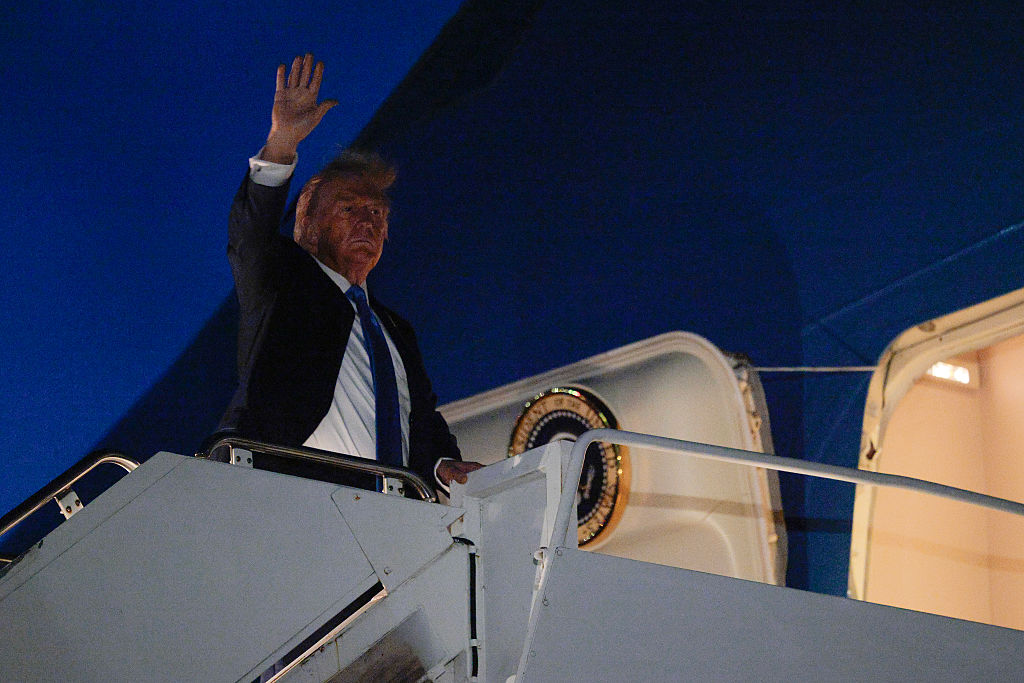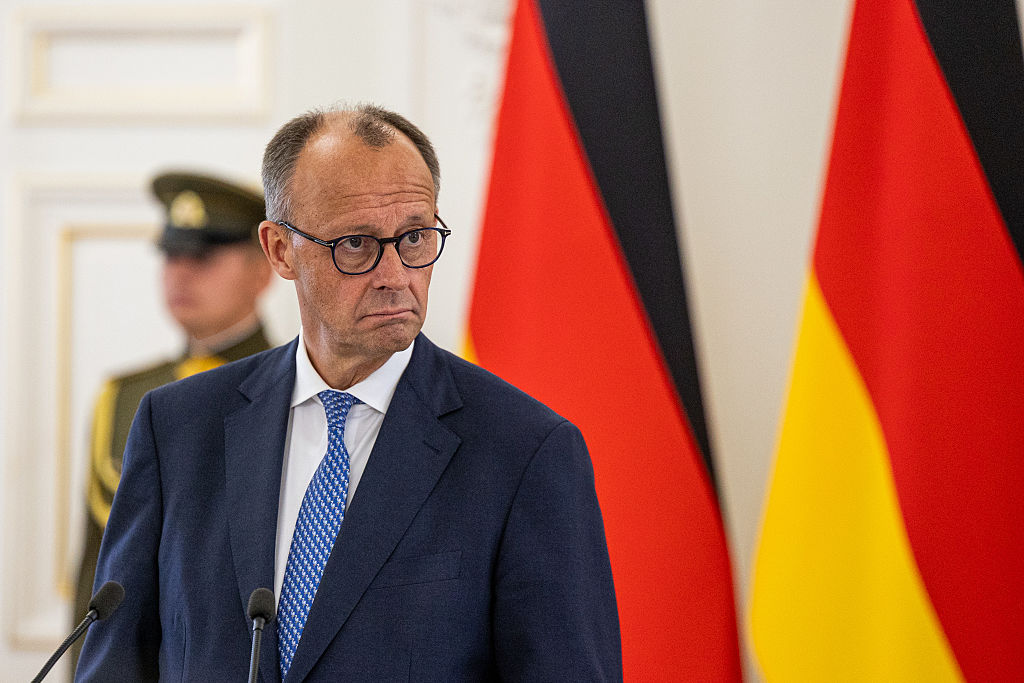French President Emmanuel Macron urged Tehran to de-escalate and “exercise the utmost restraint” after US strikes on Iran’s nuclear facilities in a call with his Iranian counterpart Masoud Pezeshkian.
The US attacked key Iranian nuclear sites overnight on June 21, joining Israel in the biggest Western military action against the Islamic Republic since its 1979 revolution.
The unprecedented strikes had wrecked Iran’s nuclear programme, US Defence Secretary Pete Hegseth said on June 22, although other officials cautioned the extent of damage at the three sites was unclear.
With the damage visible from space after 30,000-pound US bunker-buster bombs crashed into the mountain above Iran’s Fordo nuclear site, Tehran vowed to defend itself at all costs.
Together with European partners, France has advocated a diplomatic solution to end the conflict between Israel and Iran.
“I called for de-escalation and for Iran to exercise the utmost restraint in this dangerous context to allow a return to the diplomatic path,” Macron posted on X on June 22.
He said he also told Iran to “renounce nuclear weapons”, warning of “the risk of the worst for the entire region”.
“This is the only path that leads to peace and security for all,” Macron said, according to AFP.
“We devastated the Iranian nuclear programme,” Hegseth told a Pentagon press briefing, adding that the operation “did not target Iranian troops or the Iranian people”.

Standing beside Hegseth, top US general Dan Caine said: “It would be way too early for me to comment on what may or may not still be there.
“Initial battle damage assessments indicate that all three sites sustained extremely severe damage and destruction.”
Macron had said on June 21 that France and its European partners planned to step up talks with Iran.
The European Union on June 22 called for de-escalation and a return to negotiations after the US strikes.
European Commission President Ursula von der Leyen said Iran “must never acquire the bomb” and the bloc’s foreign affairs chief Kaja Kallas described the possibility as “a threat to international security”, Reuters reported.
But both stressed that Brussels remained committed to diplomacy at a flashpoint moment for the Middle East.
“I urge all sides to step back, return to the negotiating table and prevent further escalation,” Kallas wrote on X, adding that EU foreign ministers will discuss the situation on June 23.

“The negotiating table is the only place to end this crisis,” von der Leyen added, also writing on the social media platform.
On June 22, Macron also spoke with the leaders of Saudi Arabia, Oman, the United Arab Emirates and Qatar.
Macron was set convene a meeting of France’s defence and national security council from 17.30 GMT on June 22, the presidency said, according to Reuters.
Following the US attack, Iran fired another volley of missiles on June 22 at Israel that wounded scores of people and flattened buildings in Tel Aviv. The US Department of State ordered employees’ family members to leave Lebanon and advised citizens elsewhere in the region to keep a low profile or restrict travel.
Iran’s leaders struck a defiant tone and vowed to respond, while an adviser to supreme leader Ayatollah Ali Khamenei claimed its stockpile of enriched uranium was not destroyed.
International concern intensified over the surprise attacks, deepening conflict in the Middle East after Israel launched its bombing campaign against Iran on June 13.
Earlier on June 22, French foreign minister Jean-Noel Barrot expressed “concern” over the US air strikes on Iran’s nuclear facilities and also urged “restraint”.
On June 20, British, French, German and EU diplomats held talks in Geneva with Iranian foreign minister Abbas Araghchi.
They called on Iran to revive diplomatic efforts with the US to find a solution in the standoff over its nuclear programme.
On June 22, people gathered in the centre of Tehran to protest against the US and Israeli attacks, waving flags and chanting slogans, state TV showed.
US President Donald Trump claimed total success for the operation in an address to the nation hours after the attack and Vice President JD Vance followed up on the morning of June 22.

“We know that we set the Iranian nuclear programme back substantially last night, whether it’s years or beyond,” Vance told ABC.
But he also suggested Iran still had its highly enriched uranium.
“We’re going to work in the coming weeks to ensure that we do something with that fuel,” he said.
“They no longer have the capacity to turn that stockpile of highly enriched uranium to weapons grade uranium.”
In Tehran, AFP journalists reported how aircraft had roared over the city for the first time since Israel’s initial attacks.

“Even if nuclear sites are destroyed, game isn’t over, enriched materials, indigenous knowledge, political will remain,” Khamenei adviser Ali Shamkhani said in a post on X on June 22
Following the the bombing raid, Pezeshkian vowed that the US would “receive a response” to attacks during the phone call with Macron, according to the official IRNA news agency.
Rafael Grossi, the head of the UN International Atomic Energy Agency (IAEA), told CNN that there were clear signs of the hit on Fordo.
But, he added: “No one, neither us [or] nobody else could be able to tell you how much it has been damaged.”
The IAEA said it had not detected any increase in radiation levels at the nuclear sites and Tehran said on June 22 there were no signs of contamination.
Israeli Prime Minister Benjamin Netanyahu was said to have prayed for Trump at the Western Wall in Jerusalem following the US attack, after hailing the strikes as a move that would “change history”.

The Israeli military was also checking the results of the US raid on the deeply buried nuclear facility in Fordo, with a spokesman saying it was “too soon” to know if Iran had removed enriched uranium from the site.
The main US strike group was seven B-2 spirit bombers that flew 18 hours from the US mainland to Iran, according to the Pentagon.

In response to the attack, which used more a dozen bunker buster bombs, Iran’s armed forces said they targeted multiple sites in Israel including Ben Gurion airport, the country’s main international gateway near Tel Aviv.
Israeli rescuers said at least 23 people were wounded.
In Jerusalem, Claudio Hazan, a 62-year-old software engineer, said he hoped the US intervention would hasten an end to the Iran-Israel war.
“Israel by itself would not stop … and it would take longer,” he said.
At least nine members of the Islamic Revolutionary Guard were killed on June 22 in Israeli attacks on central Iran, local media reported.
The United Arab Emirates, Qatar and Oman, which had been mediating Iran-US nuclear talks, criticised the US move and called for de-escalation.
The leaders of France, Germany and Britain on June 22 urged Iran “not to take any further action that could destabilise the region”.
Trump warned Iran against retaliation. Iran and its proxies have previously attacked US military bases in Iraq and elsewhere in the region.
Iran’s Houthi allies in Yemen June 22 repeated their threat to resume attacks in the Red Sea if Washington joined the war, saying they were ready to target US ships and warships.
The US president had stepped up his rhetoric against Iran since Israel first struck the country on June 13, repeating his insistence it could never have nuclear weapons.
The European powers have urged Tehran to revive diplomatic efforts with the US to find a solution in the standoff over its nuclear programme.
But Iran had retorted that it could only consider diplomacy once Israel halted its bombardment of the Islamic republic.
“Diplomacy remains the only way to bring peace and security to the Middle East region. Too many civilians will once again be the victims of a further escalation,” Antonio Costa, the head of the European Council representing EU member states, said on June 22.

Macron had said on June 21 that France and its European partners would ramp up talks with Iran following more than a week of hostilities between the Islamic republic and Israel.
The US strikes on Iran’s nuclear sites were not a preamble to regime change, senior officials from Trump’s administration insisted on June 22, as Washington pushed for Tehran to forgo a military response and negotiate.
“Operation Midnight Hammer” was known only to a small number of people in Washington and at the US military’s headquarters for Middle East operations in Tampa, Florida.
On June 21, Macron had reiterated that “Iran must never acquire nuclear weapons.
“It is up to Iran to provide full guarantees that its intentions are peaceful,” he added.
He once again demanded that Iran must release French nationals Cecile Kohler and Jacques Paris, who have been held since May 2022 on espionage charges their families reject.
“Their inhumane detention is unjust,” Macron said.
“I expect them to return to France.”





